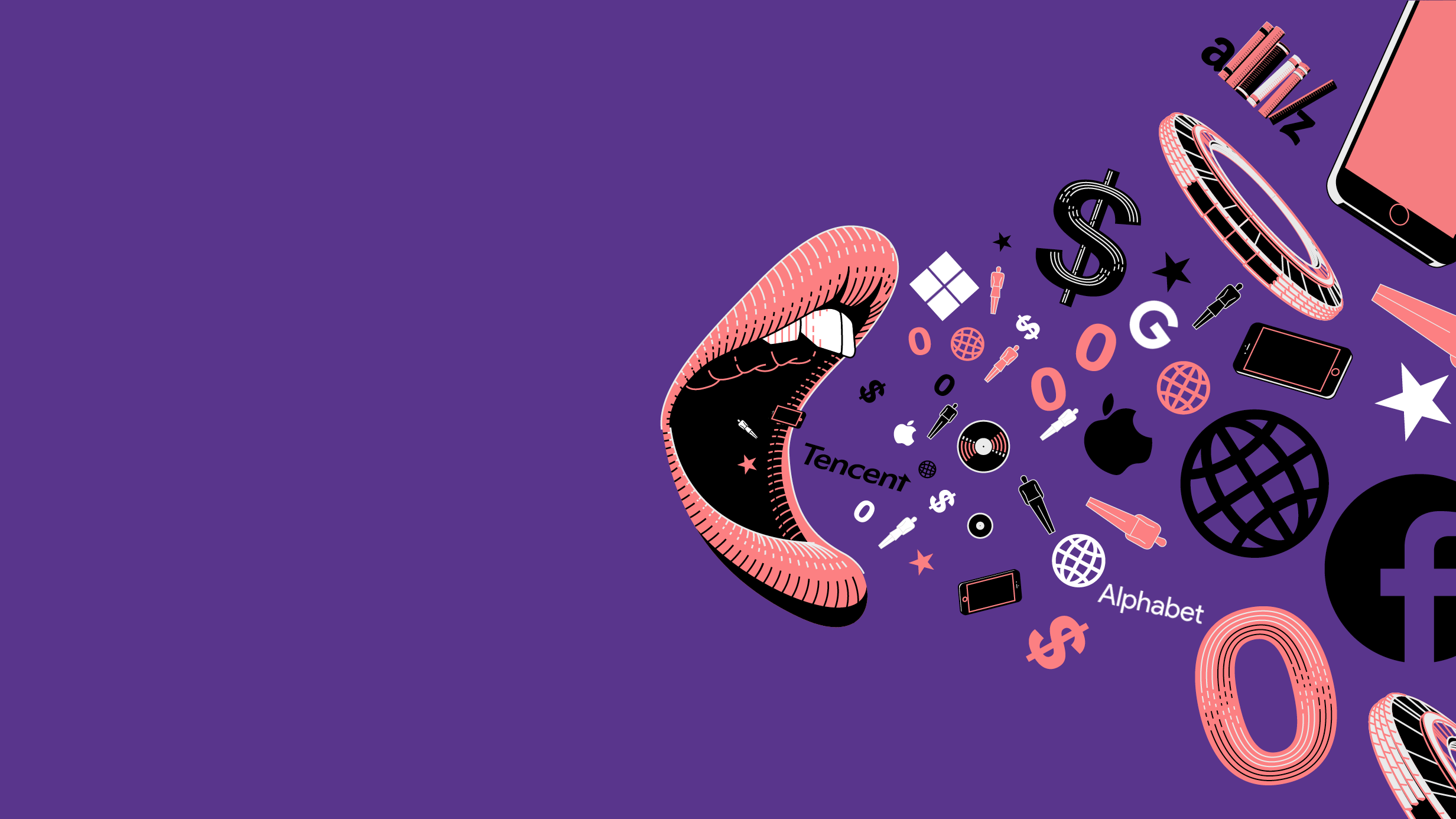
The world has moved to isolate Russia in the wake of the invasion of Ukraine – and the tech states have joined in
Here’s what you need to know this week:
- Affairs of state: The tech states join the rest of the world in moving to isolate Russia
State-by-state:
- Apple paused supply and services in Russia
- Microsoft detected hacks and provided intelligence
- Google switched off live traffic data in Ukraine
- Amazon froze supplier accounts
- Tencent blocked “outrageous” content about the war
Russia is a pariah state: increasingly isolated by a world horrified at President Putin’s invasion of Ukraine.
But what of the tech states? Should they take sides in the information war between Russia and Ukraine? And if so, could that accelerate the fracturing of the internet itself?
In the first days of the invasion, Meta and Alphabet, the owners of Facebook and YouTube, played it (relatively) safe.
While they condemned Vladimir Putin’s actions, upped their fact-checking capabilities and demonetized the accounts of Russia’s state-media – meaning that the Russian government could not make money from digital ads – neither platform actually blocked access to channels like Russia Today.
In other words, Russia was free to use US tech platforms to propagate misinformation to millions of people.
More than 7 million Facebook users follow Russia Today, now called RT. This week they were served a story with the headline: “Aftermath of heavy shelling by Ukraine forces in Donetsk”. Sputnik, another Russian broadcaster with more than one million Facebook followers, accused the Western press of “keeping silent for years” about “neo-nazism in Ukraine”. Margarita Simonyan, the editor of both publications, described the invasion as “a war between the Ukrainian government and its own people”.
The fence-sitting position could not hold. This week, Silicon Valley realised it had to take sides. As Alex Stamos, director of the Stanford Internet Observatory and Facebook’s former chief security officer, said on Twitter: “It’s appropriate for American companies to pick sides in geopolitical conflicts, and this should be an easy call.”
Faced with overwhelming pressure from European and Ukrainian lawmakers, Nick Clegg, Meta’s newly appointed President of Global Affairs, announced that Facebook would restrict access to RT and Sputnik, albeit only in EU countries.
TikTok and YouTube followed suit. Google went further, blocking downloads of the RT app in Ukrainian territory. More recently, Apple paused all product sales in Russia (see nibs below), saying it was joining “all those around the world who are calling for peace”. Microsoft was perhaps the most committed, stopping downloads of the RT app on its Windows app store worldwide, as well as RT and Sputnik content from its MSN website.
Some experts did not expect Facebook and YouTube to censor Russia. We spoke to Dmitri Alperovich of CrowdStrike before the decision was made and he said: “It would be extraordinarily significant, given the first amendment culture here in the United States.”
Many now argue that the firms should have gone further – banning RT outright and not just in the EU.
But even a partial ban marks a new frontier for the social media firms, which have previously focused on removing specific disinformation campaigns rather than entire media apparatus. It also carries risks. Russia could further restrict access to Facebook and Google in its own country, depriving many ordinary Russians from the digital conversations that could counter, rather than confirm, state-run propaganda. Though anecdotal evidence suggests many Russians are using VPN workarounds to disguise their location and allow them to search for news about Ukraine from outside of Russia.
If the tech states are in an uncomfortable position now, things are only going to get worse. More and more countries are adopting their own rules around content, furthering digital nationalism and fears of the “splinternet”.
The Russian invasion of Ukraine has sped up this process significantly.
Last week, Russia’s internet agency demanded that Google unblock the channel of a separatist leader in Ukraine’s Donetsk region – someone who had already been subject to US sanctions. In many cases, tech states have regional offices with staff who could be at threat from regimes that decide to retaliate, further complicating the issue. As Daphne Keller, a former associate general counsel at Google, told the WSJ: “It’s a weird tug of war.”
We started Tech States because we thought that big tech companies often behaved more like countries, than companies. The invasion of Ukraine is the sharpest indication yet that this is true, and that the tech giants are on the front line of geopolitics.
Tim Cook received a direct request to cut Russia off from Apple’s products and services. The plea came from Ukraine’s Vice Prime Minister Mykhailo Fedorov, who has also led an international appeal for cyber-volunteers to defend Ukraine against Russia’s aggression in the digital sphere. Cook responded by pausing all product sales in Russia, and wiping state-backed news platforms RT and Sputnik from the App Store. Apple has also limited its Apple Pay service inside Russia. This marks a major diplomatic move for the tech state and Russian officials certainly aren’t silent on the issue. The Kremlin had delivered an ultimatum to Apple (to which Apple caved), demanding that it set up a so-called “landing law” entity in Russia, and comply with the country’s legal system and government censorship, or it would levy fines, arrest staff and slow down internet provision.
The tech state with perhaps the greatest cyber capabilities of them all is weighing in. Earlier this week Microsoft reported that it had detected a wave of cyberattacks against digital infrastructure in Ukraine just hours before Putin fired the first shot in the war. The tech state is calling the malware signature “FoxBlade” in it’s Threat Intelligence Center report, and says that they were “precisely targeted” at installations in Ukraine. The tech state has not remained a neutral bystander. Microsoft is in the process of advising the Ukrainian government given the grave concerns over human rights raised by Russian attacks against emergency response services, humanitarian aid efforts and energy sector organisations. It is also sharing information with Nato and European allies.
Normally, Google live traffic features help users to avoid rush hour congestion. Last week, in Ukraine they could be used to find an armoured convoy of invading Russians. Google has now taken the decision to disable the live traffic feature in the country, recognising that it could compromise the safety of civilians but showing the location of vehicles. In a separate move, Google CEO Sundar Pichai also took the decision last week to bar Russian state-run media from generating ad revenue on the platform.
Many Amazon sellers based in Ukraine haven’t escaped the conflict. An email, seen by Insider, showed that sellers inside the country have had their accounts frozen. The message from Amazon said that sellers should “focus on your safety at this time” and not worry about making shipments or receiving penalties for missing obligations. As part of Amazon’s wider response, the tech state has provided $5 million in aid to groups now operating in and around Ukraine, including Unicef and the Red Cross. “Like many of you around the world, we’re watching what’s happening in Ukraine with horror, concern, and heavy hearts” the company’s statement said. For context, $5 million is 0.001 per cent of Amazon’s revenue last year.
Tencent has been blocking outrageous content about the conflict in Ukraine. The internet giant, which owns the messaging app WeChat, said in a public statement that individuals had taken “the opportunity to post objectionable information” about events in Ukraine. It gave some examples. They range from misinformation about students receiving college credits for enlisting to fight, to “vulgar” jokes about “beautiful Ukrainian women” being trafficked to China. Tencent said they prefer users on WeChat to be “objective and rational”. Although Xi Jinping has yet to condemn Putin’s invasion, China’s internet companies have at least taken a stance on misinformation; Tencent’s video streaming site Bilibili deleted 1,642 “inappropriate” messages about the conflict and suspended 57 user accounts.
Thanks for reading,
Alexi Mostrous
@AlexiMostrous
Luke Gbedemah
@LukeGbedemah









